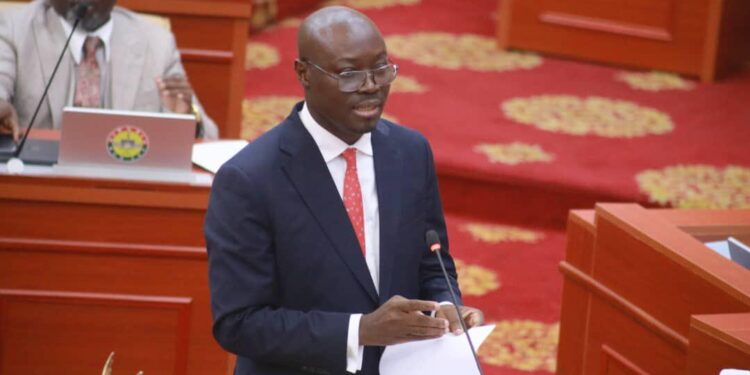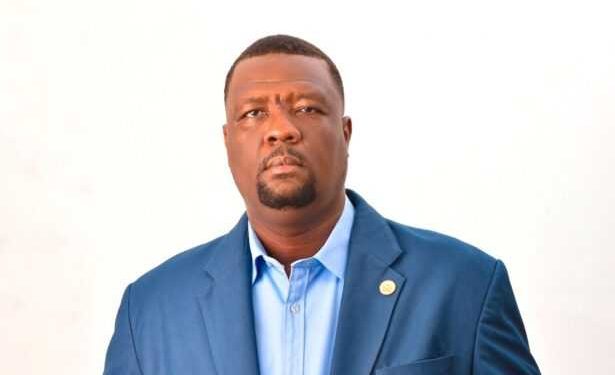The National Labour Commission (NLC) has issued summons to the leadership of the University Teachers Association of Ghana (UTAG) at the University of Environment and Sustainable Development (UESD) in response to an indefinite strike declared by UTAG-UESD.
In addition to asking professors to call off their strike and resume work while their issues are being addressed, the National Labour Commission has set a hearing for Wednesday, February 28, 2024.
“The National Labour Commission, in exercise of its powers under section 139 of the Labour act, (2003), Act 651, write to summon the parties to appear before the commission on the issues in dispute.”
National Labour Commission (NLC)
The National Labour Commission (NLC) issued a directive to the Ministry of Education, reminding it to respond immediately to the commission’s letter on February 9, 2024, regarding the matter at hand.
The strike was initiated due to the government’s failure to pay the Online Teaching Support Allowance (OTSA) to lecturers.
The University Teachers Association of Ghana (UTAG) at the University of Environment and Sustainable Development (UESD) branch advised all its members to withdraw all teaching and teaching-related services effective Tuesday February 20, 2024, until further notice.
The University Teachers Association of Ghana (UTAG) at the University of Environment and Sustainable Development (UESD) further warned that members who fail to comply would be referred to the Judicial Committee for appropriate action.
Actions Taken by NLC to Address the Issues
The National Labour Commission (NLC) has taken several actions to address the outstanding Online Teaching Support Allowance (OTSA) and other labour issues raised by teachers’ unions.
To begin with, the NLC criticized the strikes initiated by labour unions, including the University Teachers Association of Ghana (UTAG), as unmeritorious. The Executive Secretary Ofosu Asamoah of the National Labour Commission (NLC) expressed concern over the misuse of strikes as a tool by labour unions, stating that the decision to go on strike was impulsive, considering that ongoing negotiations were underway.
Again, the National Labour Commission (NLC) issued directives instructing striking unions to cease their strike actions immediately. This directive was based on the belief that until the unions comply, they would not be able to address the various demands put forth by the striking teachers’ unions.
In addition, the National Labour Commission (NLC) engaged with disgruntled unions, including the UTAG, to resolve their welfare needs. The Commission urged the unions to halt their strike actions and resume negotiations, indicating its commitment to resolving labour issues through dialogue rather than industrial action.
Despite these strikes, the National Labour Commission (NLC) indicated that progress has been made in addressing some of the concerns raised by the unions. Ofosu Asamoah stated that two out of the three issues brought up by the unions had been resolved, and the remaining outstanding issue was being worked on. He emphasized that the resolution of the remaining issue was contingent upon unions calling off their strike action.
This action by the National Labour Commission (NLC) is part of its broader effort to address labour disputes and ensure that labour rights are upheld. By issuing summons, the National Labour Commission (NLC) aims to facilitate dialogue and find a resolution to the dispute rather than allowing the strike to continue indefinitely.
This approach by the National Labour Commission (NLC) aligns with its role in ensuring that labour issues are addressed promptly and effectively, aiming to avoid industrial action and promote a peaceful atmosphere for dialogue and resolution.
Strikes in higher education institutions have far-reaching impacts, affecting not only the university’s operations and finances, but also the academic progress and graduation prospects of students.
The National Labour Commission (NLC), the University Teachers Association of Ghana (UTAG), and the Ministry of Education must carefully manage these challenges to mitigate the adverse effects on both the institution and its students.
READ ALSO: NDC’s 24-hour Policy Touted As Key For Ghana’s Economic Development





















